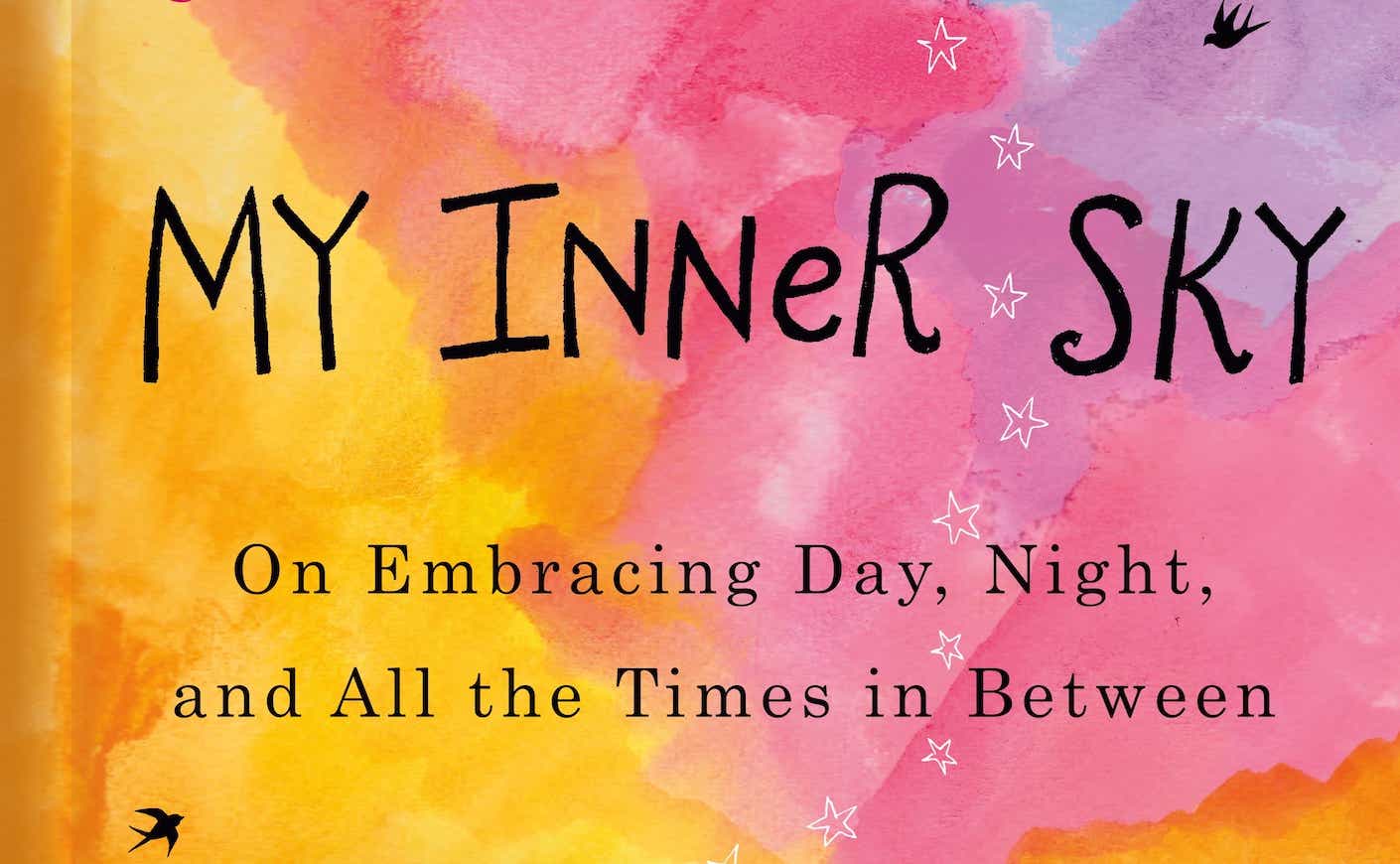Mari Andrew is no stranger to the difficulties of navigating life in uncertain times. The author and illustrator didn’t figure out her calling until she was 28, while she was struggling to cope with the death of her father.
She began drawing every day as a respite, posting relatable illustrations about being a 20-something in our day and age, on Instagram. Her authenticity resonated with people. Now, her account has over 1 million followers.
But her story has more than meets the eye: In 2017, Andrew was diagnosed with Guillain-Barré Syndrome, a rare disease that causes paralysis, on a trip abroad. As she went through painstaking recovery, she struggled with intense feelings of loneliness, the premise of her latest book, My Inner Sky: On Embracing Day, Night, and All the Times in Between.
The book is divided into four sections based on the transition periods of the day — twilight, golden hour, night and dawn — and tackles the emotions people experience in the dark, but don’t often reveal to others, out of shame or embarrassment.
“I just wanted to create a space for people to feel the full spectrum of whatever they’re going through, and really try to embrace those emotions, rather than slice them off,” she said.
Andrew spoke with KCM about her newest book and why the pandemic has made it all the more powerful.
KCM: What made you want to illustrate the full spectrum of emotions, especially those emotions between sadness and happiness?
Mari Andrew: This book is kind of resisting the idea that thinking positive is the only way to think. I started writing it after I went through a really tough recovery from Guillain-Barré Syndrome. I was constantly being told to think positively. I really didn’t want to. It felt very contrary to how I actually felt.
One thing I’ve seen a lot in our culture is this insistence on being positive and happy. I started thinking about it and realized, "Wait a second, if we’re always focusing on being happy, we’re denying some very real feelings we have that can be a source for creativity and empathy, and for getting to know ourselves better."
How did the pandemic impact your book, if at all?
Actually, I had already finished the book before the pandemic. But it’s amazing how many of the themes in it really came up this year — especially the theme of loneliness.
I realized during my recovery I felt very lonely, because I felt like my negative feelings didn’t belong or that somehow, I didn’t deserve to feel them. Resistance, and thinking, "I should be positive, I should be grateful," only made my sense of isolation worse.
I hope that this book really drives home that those emotions are all perfectly valid and loneliness is so hard but it’s so human and we’re all going through it, even during non-pandemic times.
What’s your favorite illustration in your book at this moment?
All of my illustrations include text. There’s one I wrote at the beginning of 2020, during the Australian wildfires. and I was thinking, "Oh god, this year is gonna be rough," because it began with this entire country on fire, essentially.
I remember just brushing my teeth, thinking, "Wow I’m doing this as a continent is essentially burning, and it feels so weird to be living my life as this other thing is happening."
I wrote about how throughout history that’s always been the case. Some people are celebrating, while others are grieving. It’s a sort of long piece but it’s about, "Wow, so much pain happens in the world, but there’s also so much beauty. The world provides enough food for both, even though it feels completely strange."
Why do you think your illustrations resonate with so many people?
I’ve had a lot of practice being really honest. I think that every time someone is honest, the material is going to resonate.
It doesn’t matter what you’re talking about. Every time someone says, "This is exactly how I’m feeling," without too much of a filter, people are just going to relate to that because we’re all going through the same things.
Do you think the pandemic has changed how people feel about being vulnerable and being honest? How do you think these changes might last?
I think my book is only more relevant right now because the pandemic has sort of heightened everything that humans go through anyway. It seems like we’re the most extreme version of ourselves. If you’re single, you’re really really single. If you’re partnered, you’re really really partnered. If you’re parenting, you’re really really parenting. If you’re sad, you’re really sad. It’s like all of these things have kind of gone to their extreme.
I think a lot of people who would normally spend a lot of time hiding the fact that they’re worried, or hiding the fact that they’re lonely now, have this pretty huge community of people in the same boat. So I think they are more receptive to talking about these things. I hope that continues, because it’s good for us.
What’s next for you?
Because of my book, because of the writing process of my book, I was thinking a lot about illness and how we treat it, so I just started to work as a hospital chaplain, which is someone who gives emotional support to the patients.
That’s kind of a new career that I’m exploring! It’s interesting to have this writing career, but then a totally different career at the same time. They certainly feed each other. I hope to keep writing more books, but I also hope to keep exploring this path as well. So it’s like...what’s next? I have no idea, it will be a surprise.
Written by Ciara Hopkinson.









